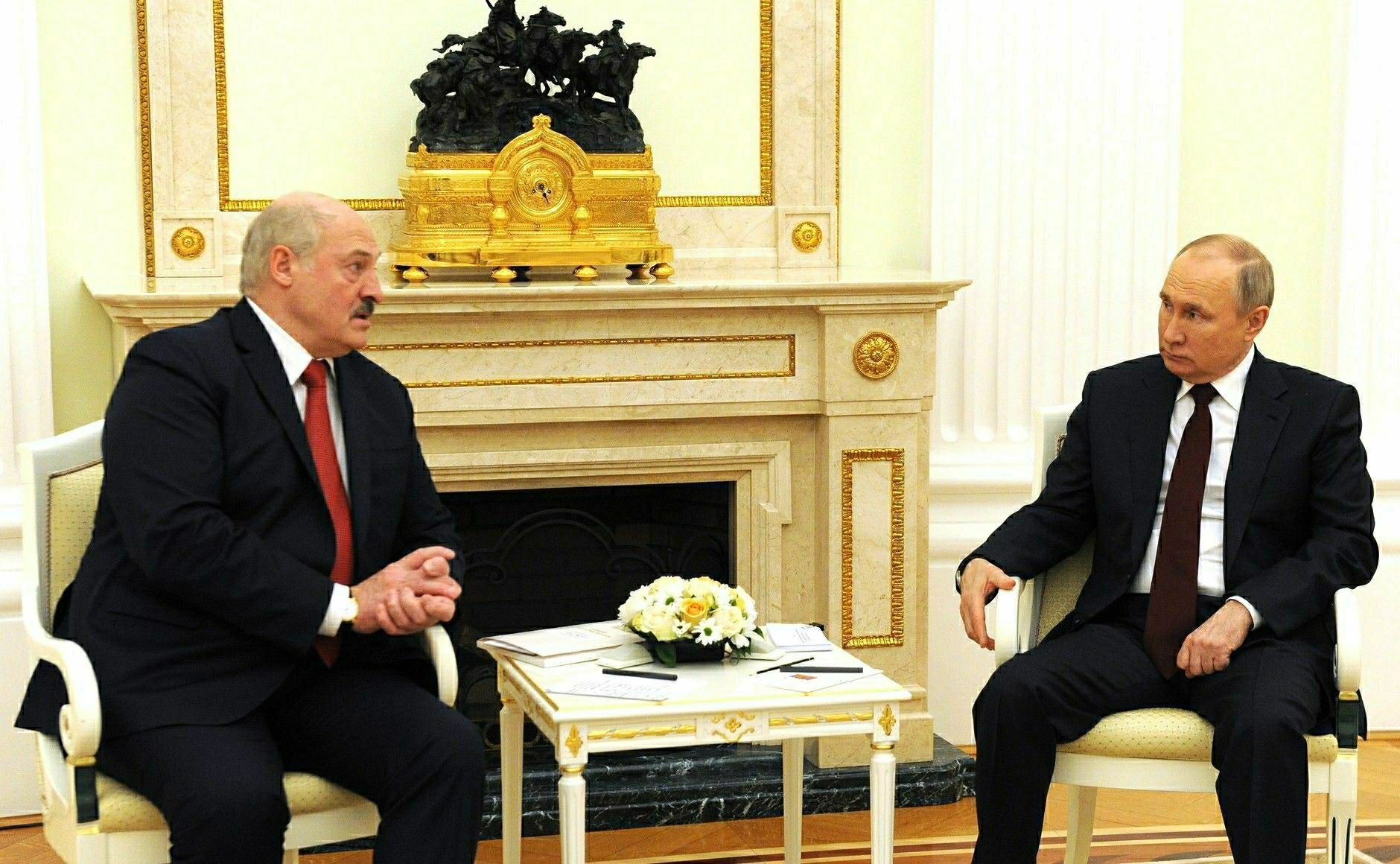Belarus-Russia Integration Talks

What did Putin and Lukashenka talk about?
On 22 April in Moscow, Vladimir Putin and Alexander Lukashenka discussed plans of economic and military integration and increasing cooperation between the secret services of both countries. It was the second meeting of the two leaders this year. Taking into account the decision-making role of the leaders in the previous negotiations, it can be assumed that they discussed issues not already agreed at the government level, primarily about adopting a common tax code, which Russia expects but which Belarus doesn’t want, and the creation of a common market for energy resources, which is one of the most important Belarusian demands, which Russia is delaying. The lack of a communique on the results of the meeting indicates that the negotiations will last until autumn, when the signing of a package of integration documents is planned.
What came before the Putin-Lukashenka talks?
The meeting in Moscow was preceded by negotiations at the government level, and on 16 April Russian Prime Minister Mikhail Mishustin visited Minsk. These negotiations focused on further increasing the transit of Belarusian goods through the Russian port of Ust-Luga, as well as economic issues, especially taxes. Mishustin did not manage to reach agreement with the Belarusian side, which has been blocking the agreements on a common tax code, fearing that Russia will impose solutions favouring Russian entities. However, since last year’s presidential elections, the negotiating position of the Belarusian government has significantly weakened, which makes it easier for Russia to push for solutions that are favourable to it, such as the establishment of supranational bodies within the Union State with legislative and judicial powers.
What do the intensive military contacts reveal?
The defence ministers and chiefs of staff of Russia and Belarus have met several times in recent months. The results of their talks and the adoption of a five-year plan of military cooperation in February show that integration in this area is progressing. Although there was no announcement about a Russian military base in Belarus, the possible establishment of one would have symbolic meaning, showing the full political subordination of Belarus.
The frequency of the contact also indicates intensive preparations for the Zapad manoeuvres scheduled for September. Considering the accusations made by Lukashenka against the U.S.—but also Poland—of preparing an assassination of him, and saying that NATO wants regime change in Belarus, the scenario of the drills may assume an attack by the Alliance on Belarus and a joint Russian-Belarussian military response.
What are the prospects for Belarusian foreign and security policy?
The signing of the documents on deepened integration in the autumn will mean that a significant part of Belarusian powers in matters of economic policy will move to the authorities of the Union State, de facto the Russian authorities. This, together with the progressing military integration and cooperation of secret services, will significantly reduce the sovereignty of Belarus. The Belarusian authorities will have to coordinate their foreign policy with Russia more closely than before. Therefore, further strain in relations between Belarus and its western neighbours, including Poland in particular, can be expected in the near future. Following the example of Russia, Belarus may intensify its anti-Polish historical campaign. Moreover, in the context of preparations for the Zapad drills, increasing tensions in regional security and the intensification of exercises near the Polish border should be expected.


